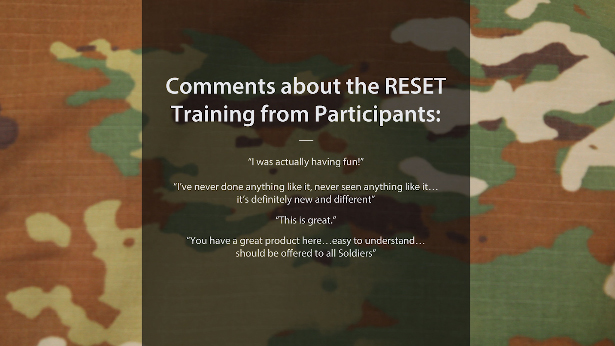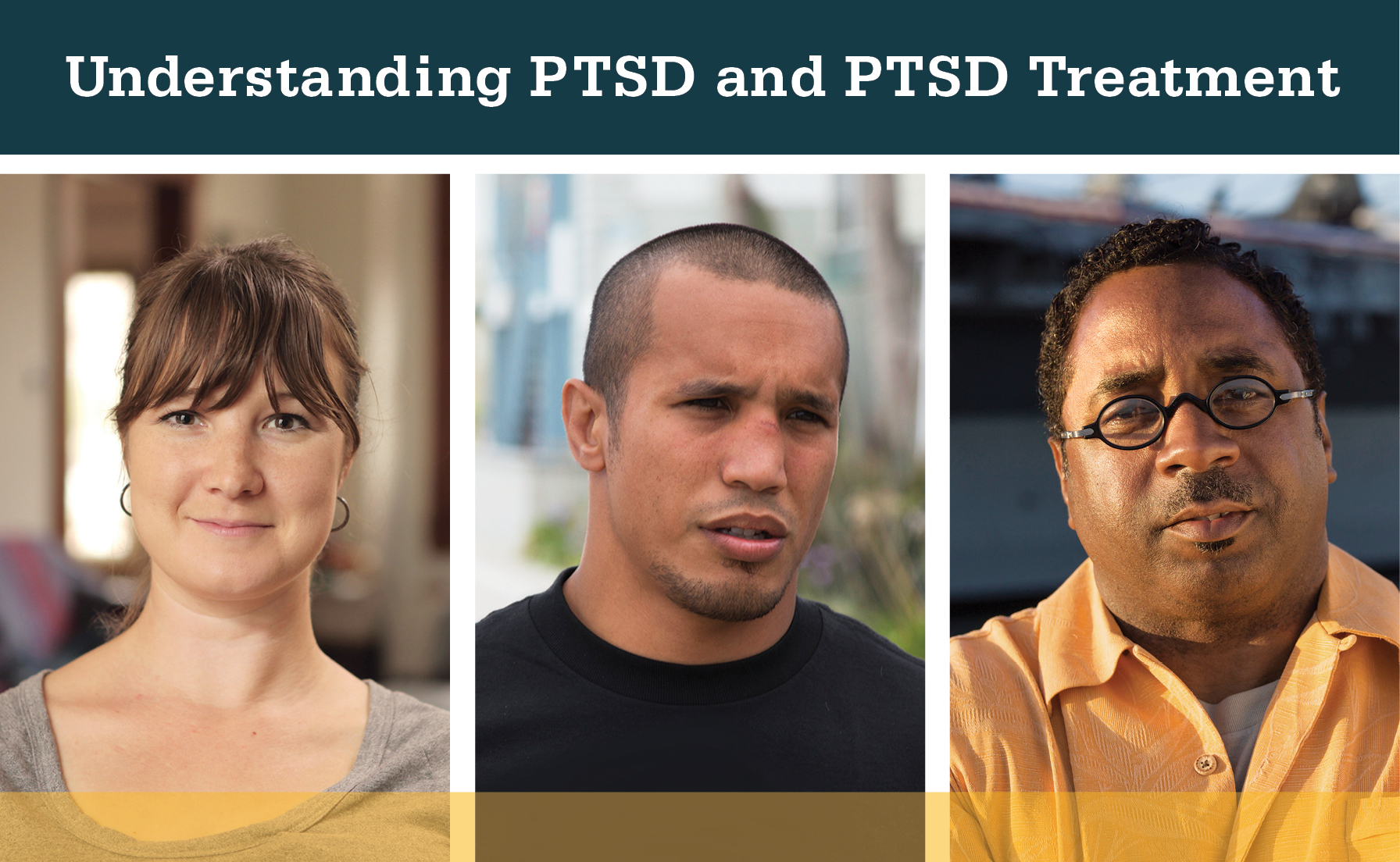PTSD: National Center for PTSD
Coping With Unwanted Thoughts: RESET for Active-duty Soldiers
Coping With Unwanted Thoughts: RESET for Active-duty Soldiers
Available en Español
If you served in a combat zone, you may think about it when you don't want to. And these thoughts and memories can be upsetting. Learn about RESET, a video training with coping skills to help active-duty soldiers cope with unwanted thoughts about deployment.
Reading time: minutes
What Is RESET Training?
After a traumatic event, like combat, it is common to have unwanted thoughts or memories about what happened. These are called intrusive thoughts. Because these thoughts can happen at any time and can be upsetting, they can affect daily life. Learning to manage unwanted or intrusive thoughts can improve overall well-being.
RESET is a 1-hour video training that aims to help Soldiers cope with intrusive thoughts following deployment. The approach RESET uses focuses on teaching the most effective strategies to manage unwanted thoughts.
Topics include:
- Remember it is normal to have intrusive or unwanted thoughts.
- Ease up on control; it doesn't always work well with thoughts.
- See and accept your thoughts: You are more than just your thoughts.
- Experience thoughts as they happen: Don't judge them.
- Train your skills: Practice is important!
Video
Watch the RESET Training Video
The training video will teach you the RESET approach to help you manage your unwanted thoughts. After you watch the video, you can use the audio links below to practice skills.
Practice what you've learned
The short audio exercises below will help you to practice the skills you learned in the RESET training. During the RESET training, we focused on strategies for managing your unwanted thoughts of deployment. However, the kinds of skills we presented can be used with lots of different types of thoughts, both pleasant and unpleasant. Use these exercises however you like. You may want to apply them when you're having unwanted thoughts of deployment, or you may want to use them for other types of thoughts.
- Introduction (1:09, MP3)
- Transcript (PDF) - Mindful Breathing (5:27, MP3)
- Transcript (PDF) - Leaves on the Stream (6:42, MP3)
- Transcript (PDF) - Kindness Meditation (4:49, MP3)
- Transcript (PDF) - The Mountain Meditation (5:48, MP3)
- Transcript (PDF) - Practicing with Distressing Thoughts (6:52, MP3)
- Transcript (PDF) - Conclusion (0:30, MP3)
- Transcript (PDF)
Additional Information
This video was a joint effort by the National Center for PTSD and the Department of Defense. While this training is geared toward soldiers who have returned from deployment, the skills taught in this training may be useful to a wide range of people, including those who have experienced other kinds of traumatic events.
References
- Shipherd, J. C., Salters-Pedneault, K., & Fordiani, J. (2016). Evaluating postdeployment training for coping with intrusive cognition: A comparison of training approaches. Journal of Consulting and Clinical Psychology, 84, 960-971. https://doi.org/10.1037/ccp0000136
- Shipherd, J.C., Salters-Pedneault, K., & Matza, A. (2016). Intrusive cognitive content and post-deployment distress. Journal of Traumatic Stress, 29(4), 301-308. https://doi.org/10.1002/jts.22113
- Shipherd, J.C. & Salters-Pedneault, K (2018). Do acceptance and mindfulness moderate the relationship between maladaptive beliefs and posttraumatic distress? Psychological Trauma: Theory, Research, Practice and Policy, 10(1), 95-102. https://doi.org/10.1037/tra0000248
You May Also Be Interested In



























